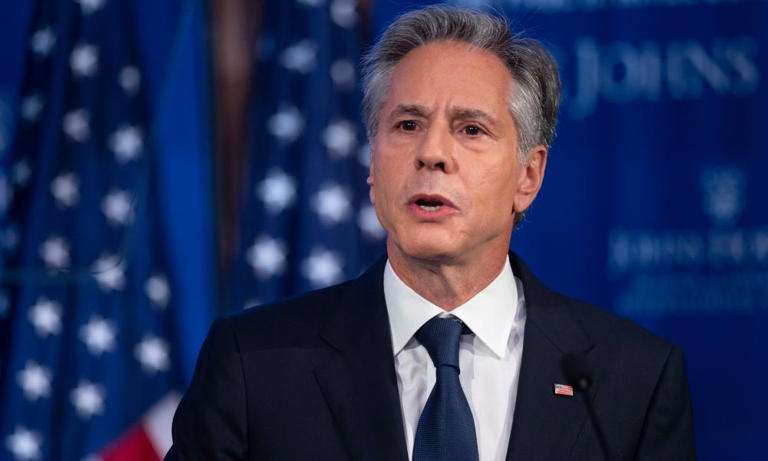In a move that underscores persisting progressive pressure on the US administration over its Middle East policy, twenty Democratic legislators have urged the administration of President Joe Biden to halt the transfer of offensive weapons to Israel, noting that the Israeli government has not complied with US demands for more aid to enter Gaza.
In a letter addressed to Secretary of State, Antony Blinken, the Congress members called on Washington to uphold its own laws that restrict military aid to countries that commit war crimes and block US-backed humanitarian assistance.
The lawmakers expressed belief that continuing to transfer offensive weapons to the Israeli government prolongs the suffering of the Palestinian people and risks US national security by sending a message to the world that “the US will apply its laws, policies, and international law selectively.”
It added that failure to act would prolong Israeli Prime Minister Benjamin Netanyahu’s war on Gaza, “isolating Israel on the international stage and creating further instability in the region.”
The letter was led by Summer Lee and Greg Casar, who was recently elected to lead the Congressional Progressive Caucus next year, succeeding Pramila Jayapal.
The push is unlikely to convince Biden and Blinken, who have repeatedly pledged their “ironclad” support for Israel, to change course.
However, it highlights Casar as a critic of Israel before he becomes the chair of the influential Progressive Caucus.
The congressional statement focuses on the Biden administration’s ultimatum to Israel in October, when US officials warned Israel in a letter to enable the flow of humanitarian aid into Gaza within 30 days or face consequences.
Although several humanitarian groups have said that Israel failed to meet the conditions outlined by Washington to improve the situation in Gaza, the Biden administration said after the deadline that it would continue to provide weapons to Israel.
The lawmakers asserted that while Israel made nominal progress in some areas, it overwhelmingly failed to meet the minimum standards laid out in the Administration’s own letter.
For instance, US officials demanded allowing 350 aid trucks to the besieged Palestinian territory.
However, an average of 42 trucks were allowed into Gaza daily during the 30-day period.
In fact, humanitarian groups – including the Norwegian Refugee Council, Oxfam, Refugees International and Save the Children – accused Israel of taking “actions that dramatically worsened the situation on the ground, particularly in northern Gaza” after the US warning.
The groups said in a joint statement last month that Israel has failed to comply with “its ally’s demands – at enormous human cost for Palestinian civilians in Gaza.”
Congressional Letter Coincides With Lawsuit
Meanwhile, the congressional letter coincided with the filing of a lawsuit by Palestinians in Gaza, the West Bank and the US aiming to compel Washington end military support to Israeli army units engaging in human rights violations.
The lawsuit accuses the Department of State of failing to implement a federal law that prohibits the transfer of funds to foreign military units engaged in gross violations such as extrajudicial killings and torture.
The lawsuit read, “The State Department’s calculated failure to apply the Leahy Law is particularly shocking in the face of the unprecedented escalation of Israeli [gross violations of human rights] since the Gaza War erupted on October 7, 2023.”
The Leahy Law is a federal regulation that bars the US government from providing funds to foreign military units when there is “credible information” implicating them in gross violations of human rights.
Those violations include torture, extrajudicial killings, enforced disappearances and rape, the US State Department says in a factsheet explaining the law.
The lead plaintiff in the case, a Gaza teacher referred to by the pseudonym Amal Gaza, has been forcibly displaced seven times since the war began and 20 of her family members have been killed in Israeli attacks.
READ ALSO: Petition for CJ’s Removal, a Test of Ghana’s Judicial Integrity





















